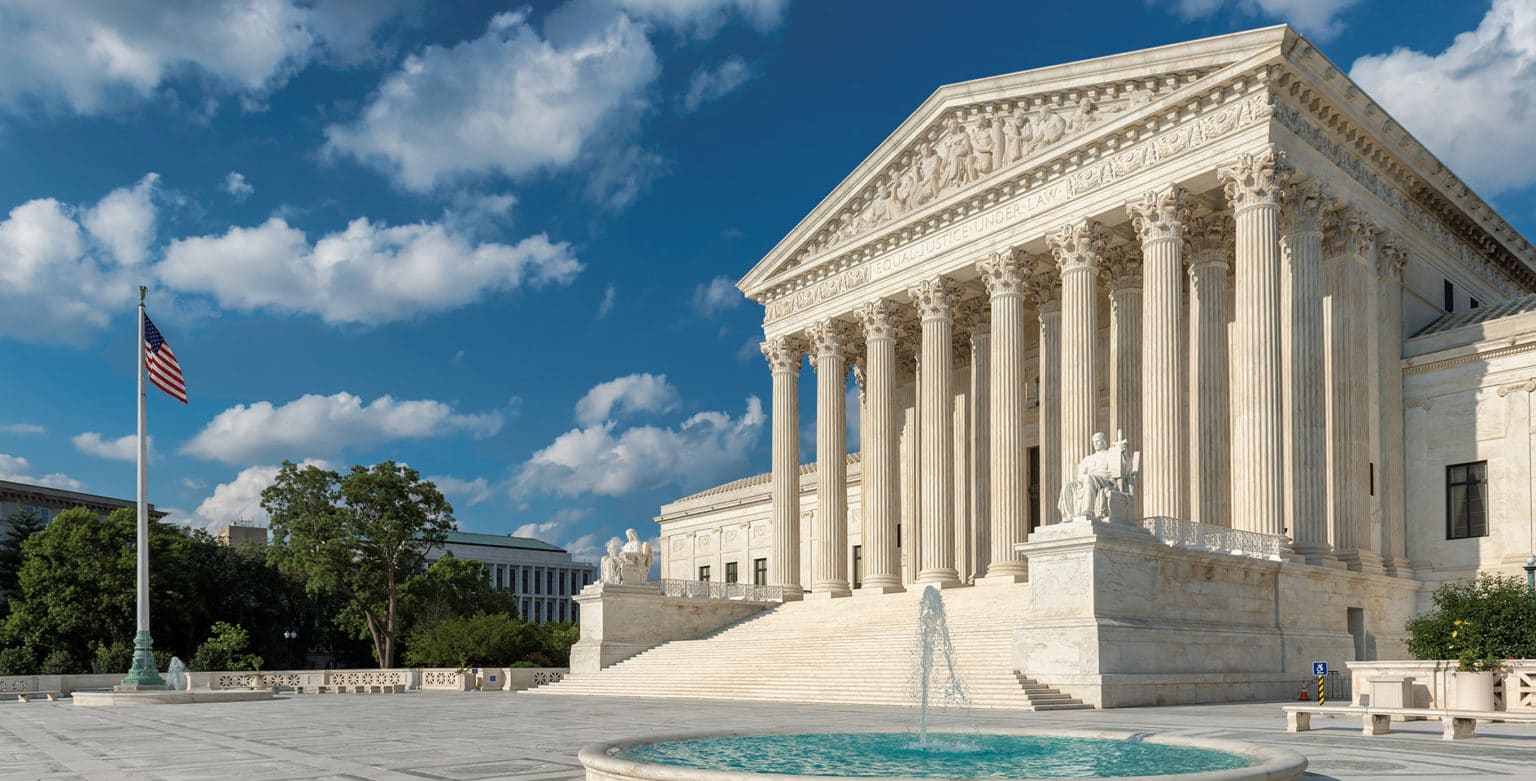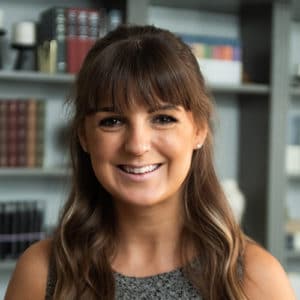The ERLC engages our culture with the gospel of Jesus Christ in the public square to protect religious liberty and promote human flourishing.
One of the ways we do this is by advocating for these things before the Supreme Court. The most recent term of the court contained some important cases that advanced the cause of religious liberty in the United States. Additionally, the court has granted cert (agreed to hear the case) for some important cases pertaining to the issue of life and religious liberty next term.
SCOTUS: Looking back to last term
Below are a few cases of importance from the previous term that were wins for religious liberty.
Fulton v. City of Philadelphia
In June, the Supreme Court unanimously ruled in Fulton v. City of Philadelphia that faith-based foster care and adoption providers such as Catholic Social Services in Philadelphia can continue serving children and families according to their convictions. The ERLC called the decision a “decisive win for religious liberty” when it was announced.
In 2018, a reporter from the Philadelphia Inquirer informed the City of Philadelphia’s Department of Human Services that two of its private foster care agencies, including CSS, would not work with same-sex couples as foster parents. The city investigated the allegation, which it considered a violation of the City’s anti-discrimination laws. When the agencies confirmed their religious views on marriage as essential for placement — although no same-sex couple had ever attempted to partner with CSS — the department ceased referring foster children to them and demanded they change their religious practices or close down their ministries.
The plaintiffs in this case were Sharonell Fulton and Toni Simms-Busch, foster moms who wanted to continue caring for children in need. Fulton and Simms-Busch filed a lawsuit on behalf of CSS claiming the Philadelphia government had violated their rights under the First Amendment’s Free Exercise, Establishment, and Free Speech Clauses, as well as under Pennsylvania’s Religious Freedom Protection Act. The lawsuit asked the courts for an order requiring the city government to renew their contractual relationship while permitting CSS to maintain their religious convictions. In July 2018, the district court denied the request, and the case was immediately appealed to the Third Circuit Court of Appeals. However, the court ruled against CSS and refused to protect the agency while its litigation proceeded to the U.S. Supreme Court.
The Supreme Court held that the City of Philadelphia infringed Catholic Social Services’ free exercise rights by refusing to renew its contract with CSS on the basis of the City’s agency contract and citywide Fair Practices Ordinance. These ordinances were in conflict with CSS’s core beliefs related to marriage and sexuality, and Philadelphia provided no religious exemption for CSS or groups like CSS.
For further reading:
Explainer: What you need to know about Fulton v. PhiladelphiaExplainer: What the Fulton case means for religious libertyTop quotes from Fulton v. Philadelphia opinionLori Windham on Fulton v. Philadelphia, the Supreme Court foster-care case
In March, the Supreme Court ruled that governments can be held accountable for past violations of First Amendment freedoms. The 8-1 ruling in a case entitled Uzuegbunam et al. v. Preczewski et al. held that a “request for nominal damages” may be used to establish legal standing to address a previous violation of a constitutional right. The ERLC argued “it is a fundamental harm for the state to infringe upon a person’s right to religion or free expression” in its brief submitted to the Court for the case and applauded this decision for affirming that view.
In 2016, Chike Uzuegbunam, then a student at Georgia Gwinnett College, talked with interested students about his Christian faith and distributed literature on campus grounds. A campus police officer approached Uzuegbunam and informed him that the college had a policy in place that prohibited the distribution of religious materials unless they were within two designated free speech areas.
After acquiring the necessary permit to speak in one of these zones, Uzuegbunam was again asked to stop by the campus police because another policy limited speech within those zones that “disturbs the peace and/or comfort of person(s).” The officer told Uzuegbunam that his speech violated these policies and threatened him with disciplinary action should he continue. Due to these events, both Uzuegbunam and another student who shared Uzuegbunam’s faith, Joseph Bradford, stopped speaking about their faith in these so-called “free speech” areas.
Both Uzuegbunam and Bradford sued college officials for enforcing these policies, arguing that the restrictions constituted a violation of their rights under the First Amendment. The students sought both injunctive relief and nominal damages. The request for injunctive relief — a legal order that would suspend the policy — was dismissed as college officials chose to discontinue their policies rather than defend them. However, the students continued to press their claim for nominal damages — a small sum of money sought in order to secure a legal judgement in a case — which was heard before the Supreme Court in January of this year.
This case is an important case in the areas of free speech and the free exercise of religion in an area with little case law on this topic — college campuses. As a public university, Georgia Gwinnett College should have allowed Uzuegbunam to express his views freely. Instead, they sought to deny his First Amendment right to free speech until he graduated, at which point they changed their policies and argued that the case should be dismissed as moot (i.e., dismissed by the court because the policy has been rescinded and there was therefore no longer a live controversy between the parties). In requesting “nominal damages,” Uzuegbunam argued the university should not escape accountability and retain the ability to restore the problematic policies after his graduation.
Students like Uzuegbunam do not give up their civil liberties when they decide to attend public colleges and universities. Until now, these schools were able to infringe the rights of students through these controversial policies, only to change the policy at the eleventh hour or wait for the student’s graduation. Uzuegbunam’s case will allow the federal courts to provide relief for students for the first time.
For further reading:
Explainer: The Supreme Court sides with former student on religious free speechTop quotes from Uzuegbunam et al. v. Preczewski et al.Casey Mattox on the Supreme Court’s decision about free speech on college campuses
SCOTUS: Looking ahead
Below are a few cases that the Supreme Court has granted cert on and will hear oral arguments on this autumn. These cases could have major implications on the issue of life and religious liberty.
Dobbs v. Jackson Women’s Health Organization
In mid-May, the Supreme Court granted cert on a case reviewing a Mississippi law that would replace the ‘viability standard’ with a limit on abortions after 15 weeks of pregnancy. The issue the court will be deciding is whether pre-viability prohibitions on elective abortions are unconstitional.
Mississippi passed a law in 2018 titled the “Gestational Age Act,” prohibiting abortions after 15 weeks except in a medical emergency and in cases of severe fetal abnormality. According to the findings in the legislation, “an unborn human being’s vital organs begin to function at ten weeks’ gestation. Hair, fingernails, and toenails also begin to form.” And “at twelve weeks’ gestation, an unborn human being can open and close his or her fingers, starts to make sucking motions, and senses stimulation from the world outside the womb.”
A doctor with Jackson Women’s Health Organization filed a lawsuit in federal district court challenging the law and requesting an emergency temporary restraining order (TRO). A district court enjoined Mississippi from enforcing the law, finding that the state had not provided evidence that a fetus would be viable at 15 weeks. Additionally, the district court believed that the Supreme Court precedent prohibits states from banning abortions prior to viability. The decision in this case could have implications for the protections of the unborn.
Oral arguments for the Dobbs vs. Jackson Women’s Health Organization case will be scheduled for later this term.
For further reading:
Explainer: Supreme Court takes up Dobbs v. Jackson Women’s Health OrganizationERLC and other pro-life organizations file brief requesting the U.S. Supreme Court overturn Roe v. Wade
According to the facts of this case, “The State of Maine relies on local school administrative units (SAUs) to ensure that every school-age child in the state has access to a free education. To be an “approved” school, a private school must meet the state’s compulsory attendance requirements, and it must be “nonsectarian in accordance with the First Amendment.”
Three families sent their children to private schools that are accredited but do not meet the nonsectarian requirement because they are religiously affiliated. The schools aren’t approved by the State of Maine, and the families did not qualify for tuition assistance. They filed a lawsuit stating that nonsectarian” requirement violates the Constitution on its face and as applied.
The question this case will be deciding is whether the state violates Religion Clauses or the Equal Protection Clause by prohibiting students participating in an otherwise generally available student-aid program from choosing to use their aid to attend schools that provide religious instruction.
Oral arguments for the Carson v. Makin case will be this October.
For further reading:
Lastly, it’s important to note that the Supreme Court refused to grant cert to Arlene’s Flowers.
In 2013, Barronelle Stutzman, the owner of Arlene’s Flowers in Richland, Washington, made news for refusing to provide flowers for a same-sex marriage. While she never refused to provide flowers for her LGBT customers, Stutzman’s conscience would not allow her to use her artistic gifts in a way that would celebrate something that she believed was wrong.
Forcing Stutzman to make flowers for the celebration of a same-sex marriage is, in essence, a form of compelled speech, which violates her freedom of speech and religion. Her case has been circulating in the courts for years. Here is a helpful timeline from Alliance Defending Freedom, the organization representing Barronelle,
“In July 2017, ADF petitioned the U.S. Supreme Court to take up Barronelle’s case. In June 2018, the Court sent the case back to the Washington Supreme Court, after vacating that court’s decision and instructing it to reconsider her lawsuit in light of the decision in Masterpiece Cakeshop v. Colorado Civil Rights Commission.
In June 2019, the Washington Supreme Court ruled against Barronelle a second time. ADF attorneys have once again asked the U.S. Supreme Court to take her case.”
It is extremely disheartening that the Supreme Court declined to grant cert to this important case.
For further reading:
What just happened with the Arlene’s Flowers court case?
While we’ve worked diligently and pray earnestly that the Supreme Court will make decisions that uphold life, religious liberty, and the freedom of conscience, we ultimately place our trust in God to fulfil his plans and use the work of the ERLC along the way. As the psalmist declares, “Some trust in chariots and some in horses, but we trust in the name of the LORD our God” (Psa. 20:7 NIV).














